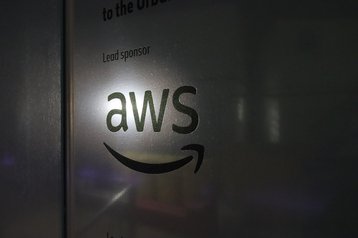The Nasdaq stock exchange and Amazon Web Services (AWS) are teaming up to help market operators migrate to the cloud.
The two organizations are partnering on a "blueprint" of solutions that aim to help markets improve liquidity, capital flows, and drive growth, while maintaining performance, security, and resilience.
In a joint statement, the companies said they will provide their "infrastructure, software, data management, and services to enable market operators to overcome modernization barriers cost-effectively without compromising resiliency or control.”
AWS and Nasdaq will bring AWS services, exchange, and trading participant systems to a common location which will give market participants access to AWS cloud infrastructure in close physical proximity to the core exchange complex and their own colocated trading systems.
Physical proximity and the related latency impact are particularly important to trading techniques such as high-frequency trading.
AWS will also provide connectivity between this infrastructure and its global regions via the AWS Direct Connect service and the AWS global network, to provide low-latency, high-bandwidth connectivity.
Nasdaq will bring its marketplace technology platform, Nasdaq Eqlipse, which integrates client community feedback and Nasdaq's development investments. It features cloud-ready applications and globally standardized APIs, and is already used by more than 135 market infrastructure providers.
Finally, a new services deployment model which will bring the companies' capital markets expertise to help reduce operational "heavy lifting".
The blueprint is based on Nasdaq's own migration to AWS. Nasdaq began moving its trading platform to AWS in 2022, starting with one of its options exchanges, known as Nasdaq MRX. The stock exchange uses a combination of AWS cloud infrastructure and an AWS on-premise solution, which turns Nasdaq's data center into a private AWS Local Zone.
Nasdaq’s primary data center for its US Equities and Options Markets is located in Equinix’s NY11 facility in Carteret, New Jersey.
“These are new services they otherwise wouldn’t be able to offer,” Nasdaq president Tal Cohen said in an interview Thursday, reports Bloomberg. “It’s a guide of how to improve your infrastructure to attract more capital and liquidity.”
Nasdaq and AWS are already working with the Johannesburg Stock Exchange (JSE), Grupo BMV, and Nasdaq’s Nordic markets to modernize their ecosystems.
JSE is working with Nasdaq on the development of colocation and data intelligence, and insights services. The blueprint service deployment model is hoped to help JSE modernize its technology, leverage Edge computing infrastructure, and explore the use of AI.
Leila Fourie, Group CEO of the JSE, said: “This strategic collaboration is an extension of the long-standing relationship the JSE has with Nasdaq. The market infrastructure developed in partnership with Nasdaq and AWS will open the door to greater global market interconnectivity with minimal latency, which will support increased liquidity and capital flows between the US and South African capital markets. We will be setting new standards for the industry through innovation and technology that creates value for market participants."
Meanwhile, Grupo BMV is looking to build on its existing technology partnership across its clearing and central securities depository platforms by leveraging the services deployment model, and evaluating the long-term potential for cloud infrastructure in Mexico.
In the Nordics, Nasdaq plans to start with the Nordic derivatives market and will provide additional services to clients powered by AWS infrastructure, as well as Nasdaq's GPUs in its own data center in Väsby, Sweden.
Other exchanges and market operators to have migrated to the cloud in recent years include the London Stock Exchange Group (LSEG), which announced its plans to move to the cloud in 2022. Microsoft bought a stake in the LSEG, and the latter committed to moving its operations to Microsoft's Azure with a minimum spend of $2.8 billion.
CME Group selected Google Cloud for private cloud and colocation services in June 2024. The private Google Cloud region will host a specialized platform to support global trading of CME's futures and options markets and will provide traders with access to a cloud-based low-latency network and high-performance computing.




